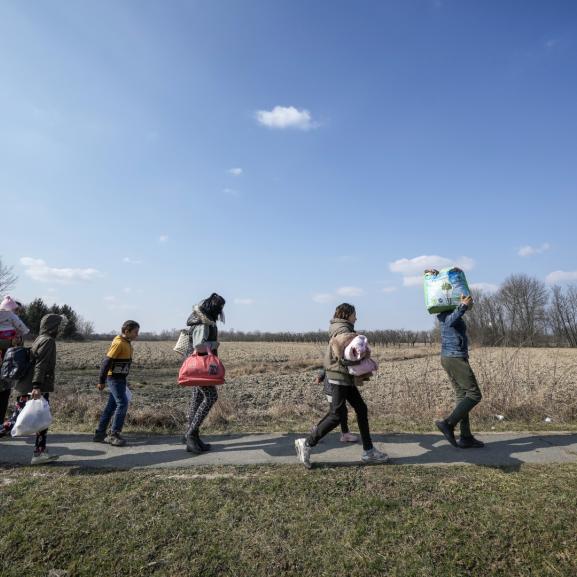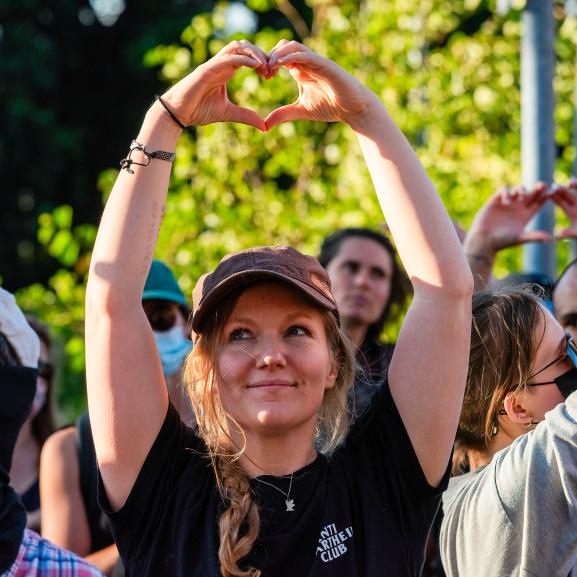In response to the Syrian crisis UN and UK Ministers hear from survivors at Freedom from Torture
The importance of creating a safe environment and offering rehabilitation services to those fleeing sexual violence and other forms of torture from Syria were the themes of a roundtable hosted by torture survivors for UK Ministers and the UN Special Representative on Sexual Violence in Conflict at Freedom from Torture today.
The UN’s Zainab Hawa Bangura was accompanied by FCO Minister Baroness Anelay and DFID Minister Baroness Verma to the charity’s London treatment centre where they heard from members of Survivors Speak OUT, the torture survivors’ activist network.
Members of Survivors Speak OUT who are former Freedom from Torture clients spoke about their experience of rehabilitation and professionals documenting torture and the sexual violence they had suffered - which they hope will help to shape the international response by the UN and the UK to the current Syria refugee crisis, subject of this week’s conference in London.
The survivors told Mrs Bangura and the UK Ministers that many of those who use Freedom from Torture’s services need several meetings with a psychological counsellor or a forensic doctor before they feel able to reveal any details of their experience, including that they have been raped or suffered other sexual violence.
The recounting of the violence they have suffered can involve the risk of retraumatising survivors, including flashbacks or episodes of disassociation. It is for these reasons that disclosure of torture and sexual violence is extremely difficult for survivors in refugee camps or still en route to safety.
The recounting of the violence they have suffered can involve the risk of retraumatising survivors, including flashbacks or episodes of disassociation.
It is for these reasons that disclosure of torture and sexual violence is extremely difficult for survivors in refugee camps or still en route to safety.
In these situations, survivors need to draw on their resilience and encounters requiring them to expose their vulnerabilities can be psychologically dangerous. A further concern for many is stigmatisation by the community around them, which is especially the case for survivors of sexual violence, whether male or female.
The group spoke about the benefits of therapy in a safe space and conducted by expert professionals who can minimise these risks and provide long-term treatment.
Members of SSO told the visitors that holding the perpetrators of torture and sexual violence to account and securing political recognition of the abuses they have suffered are essential to delivering long-term stability in the countries they have fled.
It is vital that survivors’ views inform efforts to hold the perpetrators accountable and are included in peacebuilding and development efforts.
“Making their voices heard and being able to work for change are in themselves important for survivors seeking some sense of closure and to rehabilitate fully” said SSO co-ordinator Kolbassia Haoussou."







